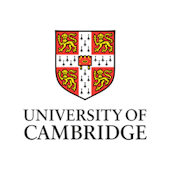Mona Jebril is a PhD student in Education at Cambridge and a Gates Scholar. Previously, Mona has completed her masters degree in higher education at Oxford University where she won Said Foundation Second Prize for Personal and Academic Achievement. Her MSc thesis was entitled: Reflections on Higher Education in Palestine: Barriers to Academia and Intellectual Dialogue in the Palestinian-Israeli Context. Ms Jebril has an extensive experience of teaching and training at governmental schools in the Gaza Strip. Working, later on, at two of Gaza’s universities, Mona became interested in researching academic culture under occupation, which constituted to the focus of her research in Cambridge. In addition to teaching and lectureship, Ms Jebril has acted as the founder and coordinator of Kolmar Scholarship Program in the Gaza Strip from 2008-2012. She has also co-founded two other centres in Gaza: the English Language Proficiency Centre (ELPC) at the University of Palestine and the National Teacher Development Centre (NTDC) at Al Azhar University.
Over the past 50 years, writings on the Arab world have come to be dominated by Western researchers. In order to scrutinize the basis of knowledge on the South, it is important to research educational experience from the Southern perspective. This PhD research takes this direction. It explores the perspectives of educationalists in Gaza’s universities on their higher education experiences and the ways in which this ‘experience’ may be evolving in the shifting socio-political context of the Arab World. This sociological study, although it benefits from conceptual insights, such as those of Gramsci, Freire, and Bourdieu, as relevant, is designed as a micro-level inductive research. In particular, it is concerned with the perspectives of 30 educationalists from Gaza’s universities interviewed by Skype from Cambridge. The analysis will based on the perspectives of the research interview participants, informed by the literature review, and for reflection purposes, triangulated with other research activities. This research is very important not only because it will inform disciplinary knowledge on higher education and sociology of Gaza, but also because it could have practical significance by supporting the implementation of educational reform and development in Gaza in the future. The study is also important to other cultural and conflict research contexts. In addition, it is hoped that it will inform the research experience in the South more generally.
Experience
-
–presentPhD candidate, Faculty of Education, University of Cambridge
- Cambridge, UK
- Article Feed
- Joined


